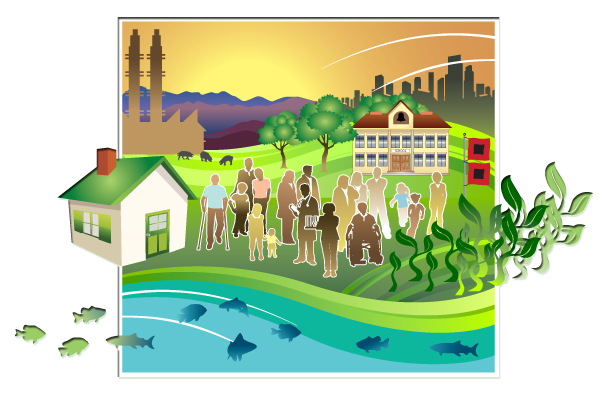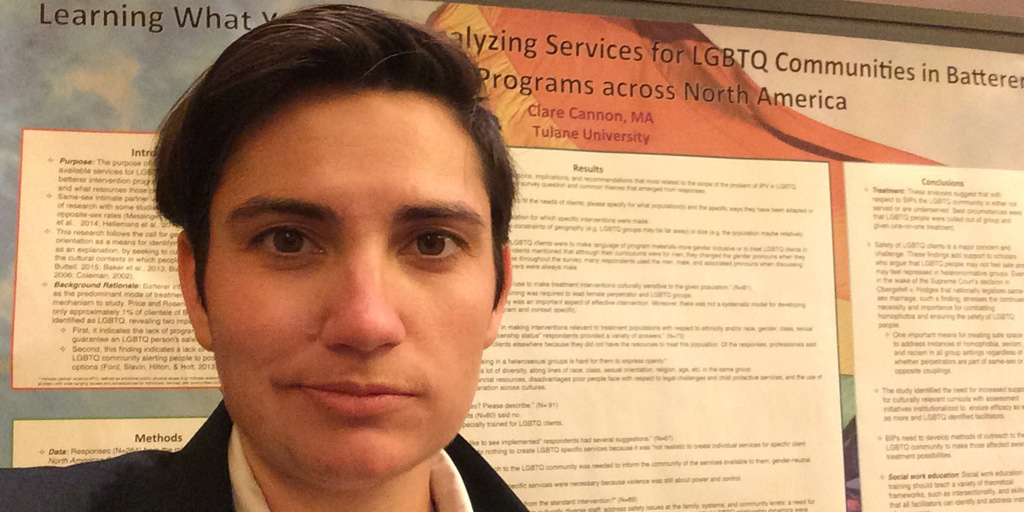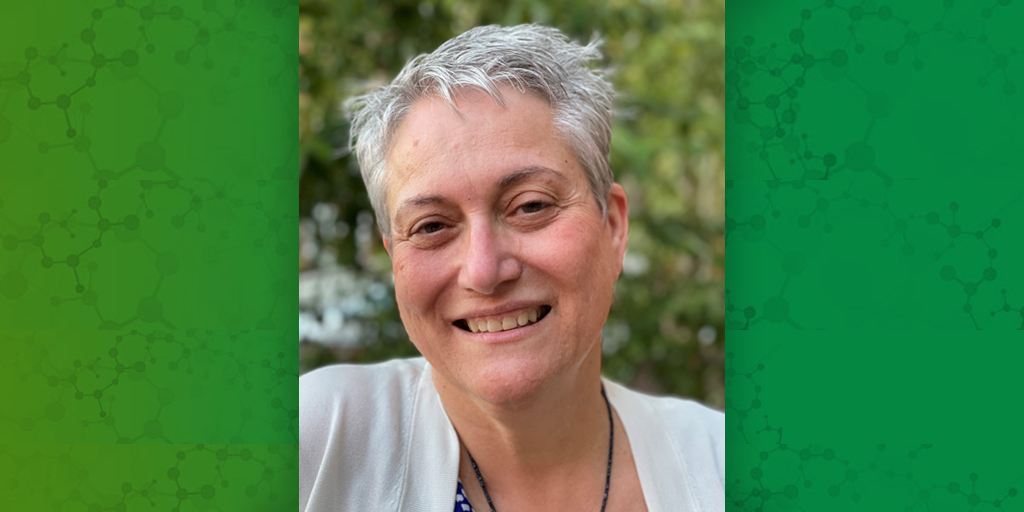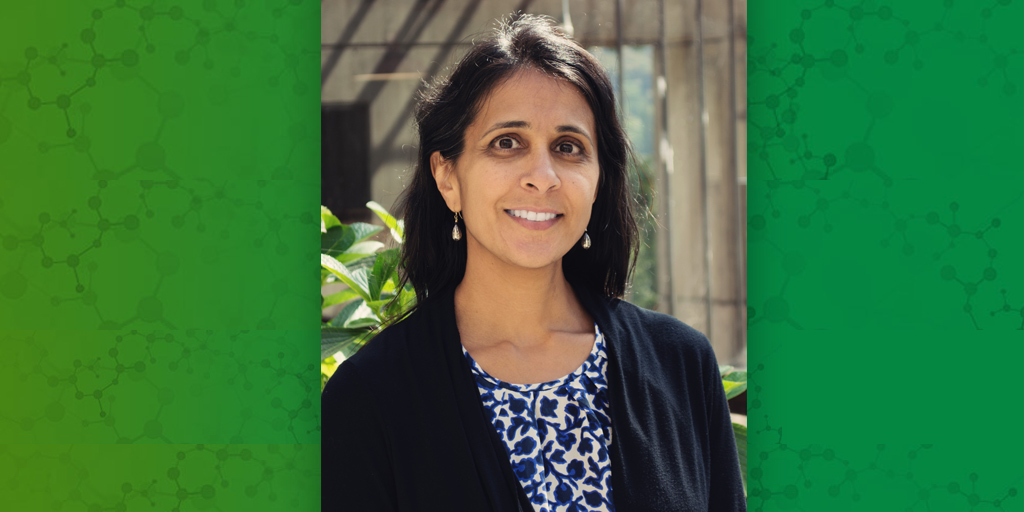Navajo Philosophies and Worldviews Shape Focus Groups on the Impacts of a Mine Spill
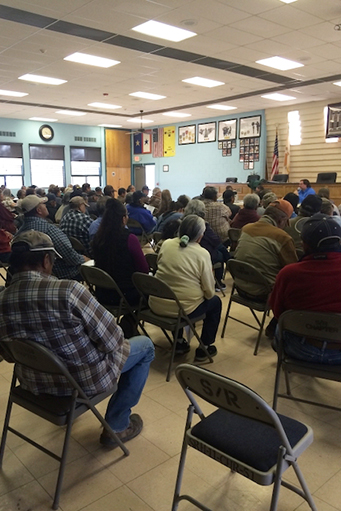
Diné community members participate in a listening session. (Photo courtesy of Paloma Beamer, Ph.D.)
NIEHS-funded researchers and Navajo (Diné) community partners incorporated Indigenous philosophies and worldviews into the development of focus groups to examine the effects of an environmental disaster on the Navajo Nation. In 2015, the Gold King Mine Spill released contaminants into a river that runs through the Navajo Nation. Researchers sought to examine the impacts of the spill on the Diné community. A recent publication describes how they developed and implemented the focus groups and analyzed resulting information to gain insight into conducting research with Indigenous communities.
Karletta Chief, Ph.D., co-principal investigator with the University of Arizona, described how the project started: “After the Gold King Mine Spill, the Navajo Nation Environmental Protection Agency reached out to the Community Engagement Core of the Superfund Research Program at the University of Arizona for assistance to determine the impact the spill would have on the Diné community. We listened to community concerns through forums, public meetings, and listening sessions. As a result, we developed research concepts and submitted them for review by the Navajo Nation Environmental Protection Agency and Navajo Nation Department of Water Resources. Once the research was approved by the Navajo Nation Human Research Review Board, Diné community partners worked with us to develop focus groups that would help understand the impacts of the spill on Diné communities. We owe the success of the focus groups in large part to our Diné community partners and Jeannie Benally of the University of Arizona Tribal Cooperative Extension.”
Community Partnerships Build Trust in the Indigenous Community
The research was part of the Gold King Mine Spill Diné Exposure Project and was conducted in partnership with the Northern Arizona University, Navajo Nation, Navajo Community Health Representatives, Tó’ Bee NihiDziil, Diné College, the University of Arizona Tribal Cooperative Extension, traditional knowledge holders, community leaders and advocates, and Diné community members.
Diné community partners participated in all aspects of the project, leading to community buy-in and trust.
“We are well aware of distrust in research and non-Indigenous researchers due to past injustices, and yet knew that the community questions about the impact of this devastating spill needed to be answered in a culturally-responsive approach”, stated Paloma Beamer, Ph.D., co-principal investigator with the University of Arizona. “The community partnerships and buy-in were essential for making this research possible. Because of the trust-building among community members, we had more authentic responses that went beyond physical health concerns and allowed us to get a better understanding of the cultural and spiritual impacts.”
University of Arizona researchers held listening sessions in each community to inform development of the focus groups. They also presented the research proposal to Navajo chapters, or individual geographical entities within the Navajo Nation, for approval, and the Navajo Nation president and vice president provided their support.
Diné and fluent Diné language speakers led the focus groups, and Diné and non-Diné students, faculty, and community members supported the focus groups. Cultural experts were consulted to guide teams through focus group methods.
Adapting Focus Groups to the Diné Community
Diné researchers, traditional knowledge holders, and medicine people played an important role in ensuring Diné philosophies and worldviews were incorporated in the focus groups. The project used the two-eyed seeing approach, which is a way of adapting non-indigenous research practices to Indigenous culture. This approach recognizes that Indigenous cultural practices are of equal importance to non-indigenous research methods.
Diné cultural experts advised the researchers on incorporating a key Diné cultural concept, called K’é, in the design, conduct, and analysis of the focus groups. K’é is a way of honoring relationships to others and the natural world. Following this cultural guidance, researchers incorporated practices into the focus groups by beginning sessions with formal greetings in which Diné team members acknowledged their family ties and parental lineages, while non-Diné team members offered a similar greeting. This practice established that these sessions were conducted in the context of Diné culture and values.
“Through the guidance of the Diné partners, we knew the community would be more receptive to participating in the research and sharing their concerns when it was clear that Diné values were being honored in the focus groups”, added Chief. “Practices such as the formal greeting, offering a Diné prayer, and translating all statements into Diné and English, firmly grounded the focus groups in the culture and established a trusted space for participants to voice their concerns in the context of their culture.”
Determining the Socio-cultural Impacts of the Mine Spill
Focus group questions were framed with Diné values and concerns in mind. Researchers asked questions about community members’ relationship with the river and with farming. For example, researchers asked how the community members thought the river would be used in the short- and long-term, and what they would like to see for the river in the future.
Participants expressed concern for long-term changes to the culture as a result of the spill, such as whether the community would be able to continue traditional farming and ranching, and whether their children would move away from the area and lose connection with families and traditions. Participants spoke about spiritual concerns related to river access and to crops used in traditional practices whose growth may now be threatened. Community members also expressed concerns about mental health risks.
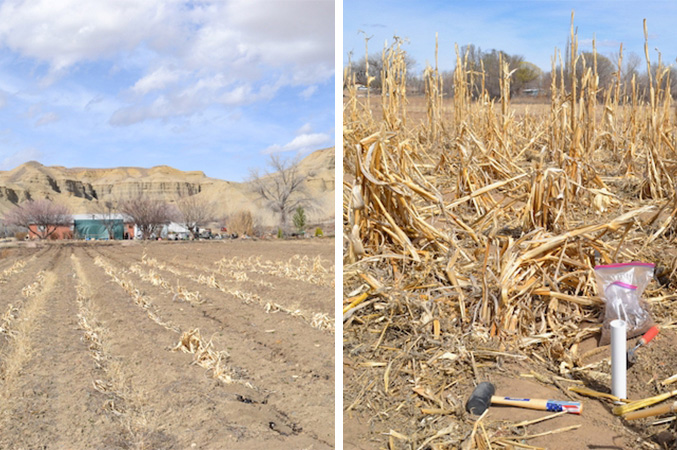
After the spill, corn fields on the Navajo Nation remained unplanted during the usual re-planting season while irrigation systems pulling water from the contaminated river were shut off. (Photos courtesy of Paloma Beamer, Ph.D.)
“Focus group participants were candid about their concerns and openly discussed the spill in a cultural context”, stated Beamer. “It was apparent that the community sees a wide range of impacts from the spill, including impacts on preserving their way of life and to the wildlife. The spill is viewed as a recent example in a long history of offenses to the community.”
Nicolette Teufel-Shone, Ph.D., co-principal investigator with Northern Arizona University, said, “Having Diné and non-Diné data analysts and authors from the Navajo Nation, community organizations, and the universities was critical to ensure that focus group participants’ perspectives were conveyed within the cultural context in which they were shared.”
The results were presented to Navajo Nation leaders and will be used to help the community mitigate the impacts of the spill. As another outcome of the research, Navajo Nation leaders expressed interest in hearing community members’ concerns to address and plan for emergencies in the future. Trust built through this collaborative project has also led to future opportunities for the researchers and partners, including training students on how to work with Indigenous communities and addressing additional community concerns such as food sovereignty and COVID-19 pandemic response.
Successful Collaborations With Tribal Communities
Recently, a team of researchers, led by Jonathan Credo and Jani Ingram, Ph.D., outlined general strategies for developing successful research partnerships with American Indian and Alaska Native communities. These strategies were reflected in the Gold King Mine Spill Diné Exposure Project’s focus group activities, but they are generalizable and focus on building trust in the community through transparency and equitable partnerships. Strategies include:
Federal government entities, such as the NIH Tribal Health Research Office (THRO), also have policies to foster equitable engagement of tribes, supporting successful research with respect to tribal culture. At NIH, THRO is the central point of contact for American Indian and Alaska Native communities throughout the U.S. THRO helps ensure meaningful input from and collaboration with Tribal Nations on NIH policies, programs, and priorities through Tribal consultation. In addition, THRO helps raise cultural competency across the agency and hosts events focused on the importance of American Indian and Alaska Native culture in biomedical research. To learn more, watch a recent lecture on the interconnectedness of culture and science and read about THRO’s historic Traditional Medicine Summit which provided a foundation for integrating traditional healing knowledge with research.
Public Comment Sought on New Objectives for Healthy People 2030
Healthy People 2030 includes objectives for improving the health and wellbeing of Americans over the current decade. Objectives are arranged by categories such as environmental health and the social and community context of health. The Department of Health and Human Services is seeking public comment on three new objectives:
The public can also propose additional core, developmental, or research objectives that address critical public health issues. Public comments will be accepted until January 10, 2022.
Resources Developed to Counter Health Misinformation
Health misinformation is the spread of false, inaccurate, or misleading information that does not adhere to the best available scientific evidence. The NIH Community Engagement Alliance (CEAL) Against COVID-19 Disparities and the Office of the U.S. Surgeon General have developed resources to fight the spread of health misinformation.
CEAL COVID-19 resources were developed for public health professionals in communities disproportionally affected by COVID-19. These resources are available in English and Spanish and include materials such as a fact sheet on COVID-19 vaccines with details about vaccine development and reasons to get a vaccine.
The Surgeon General’s report, A Community Toolkit for Addressing Health Misinformation, includes tips for addressing all types of health misinformation and with all audiences. Practical tips address how to avoid spreading false health information in daily situations. It also has steps to take when communicating with family and friends about misinformation, such as empathizing, pointing to credible sources, and using inclusive language.
Report Provides Strategies for Achieving Better Health Through Climate Action
The International Society for Environmental Epidemiology and the International Society for Urban Health released a joint report in November 2021, Health Co-Benefits of Climate Action Through Co-Production and Systems Thinking. The authors proposed that better health can be achieved by developing climate change policy with a multi-disciplinary approach that considers community health. They also emphasize the importance of transparent collaborations among multi-disciplinary teams of policymakers, health professionals, researchers, and community members in developing scientific evidence that takes diverse community perspectives into account. This approach encourages equitable partnerships that meet the health needs of communities while addressing climate change issues.
NIEHS Releases Technical Assistance Pilot Program
The NIEHS Division of Extramural Research recently released a one-year pilot program which provides technical assistance to researchers and community partners. The pilot offers training in grant writing, peer review, evaluation, logic modeling, metrics development, and translational research. The program encourages NIEHS grantees and potential grantees to increase diversity and inclusion of staff and community partners, and to engage community partners in the research process. Program details will be available online later in January. For more information, you may reach out to Toccara A. Chamberlain.
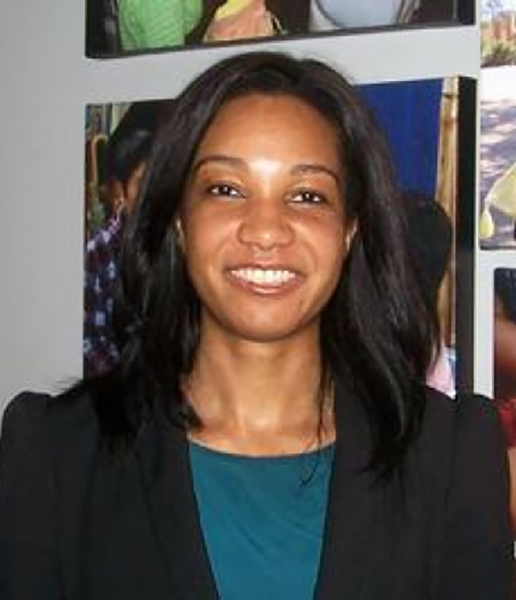
PEPH Grantee Highlight
Christine Marie George, Ph.D.
Christine Marie George, Ph.D., an epidemiologist, and environmental engineer at Johns Hopkins University, engages with communities to develop environmental health interventions. George and her team work to reduce exposures to such contaminants as arsenic in drinking water. George prioritizes community engagement in intervention design and implementation to help the community take ownership the project.
Funding Opportunities
PHS 2021-2 Omnibus Solicitation of the NIH, CDC, and FDA for Small Business Innovation Research Grant Applications (Parent SBIR [R43/R44] Clinical Trial Not Allowed)
Enables U.S.-owned and operated small businesses to conduct research and development that has a strong potential for commercialization. This award and the associated PHS 2021-2 Omnibus Solicitation of the NIH and CDC for Small Business Innovation Research Grant Applications (Parent SBIR [R43/R44] Clinical Trial Required) provide funds for small businesses to stimulate technological innovation in the private sector and strengthen the role of small business in meeting federal research and development needs. The related Small Business Technology Transfer announcements (PHS 2021-2 Omnibus Solicitation of the NIH for Small Business Technology Transfer Grant Applications (Parent STTR [R41/R42] Clinical Trial Not Allowed) and PHS 2021-2 Omnibus Solicitation of the NIH for Small Business Technology Transfer Grant Applications (Parent STTR [R41/R42 Clinical Trial Required)) aim to foster technology transfer through cooperative research and development between small businesses and research institutions. Applicants are encouraged to submit grant applications in response to NIH-identified topics.
Deadline: January 5, 2022
Notice of Special Interest (NOSI): Administrative Supplements for Research on Sex And/Or Gender Influences (Admin Supp Clinical Trial Optional)
Supports research highlighting the impact of sex and/or gender influences in human health and illness. The proposed research must address at least one objective from the five strategic goals of the 2019-2023 Trans-NIH Strategic Plan for Women's Health Research. A broad range of research topics studied at the basic, pre-clinical, translational, and clinical levels that address the role of sex and/or gender in health and disease are encouraged. Studies that explore sex or gender influences or the intersection of sex and gender are also encouraged.
Deadlines: January 26, 2022; January 26, 2023
Notice of Special Interest: Administrative Supplements for Summer Research Experiences for Students and Science Teachers
Supports summer research experiences in the environmental health sciences for high school students, college undergraduates, master’s degree candidates, medical students, secondary school science teachers, and science professors from community, junior, or technical colleges, as well as primarily undergraduate institutions. These supplements are intended to introduce students and teachers to research in the environmental health sciences that would not otherwise be available to them through their regular course of study.
Deadline: Jan. 31, 2022
Notice of Special Interest (NOSI): Research on the Health of Women of Understudied, Underrepresented and Underreported (U3) Populations (Admin Supp Clinical Trial Optional)
Supports projects highlighting common sources of disparities in women and girls’ health with a specific emphasis on those that integrate measures beyond the individual level and consider perspectives from multiple disciplines. A broad range of research topics studied at the preclinical, clinical, behavioral, and translational levels are encouraged. Proposals incorporating multilevel interventions, using community-engaged approaches, and focusing on one or more NIH-designated health disparities populations are also desired.
Deadline: January 31, 2022
Virtual Consortium for Translational/Transdisciplinary Environmental Research (ViCTER) (R01 Clinical Trial Optional)
Fosters and promotes early-stage multi-disciplinary collaborations and/or translational research efforts among fundamental (technology and mechanism oriented), clinical (patient-oriented) and population-based researchers in the environmental health field. The collaborative teams will come together in common interest to investigate potential linkages between human health and one or more environmental stressor(s). The ViCTER program is intended to support innovative high-risk, high-reward cross-disciplinary and/or translational research projects that are more difficult to achieve in a typical R01 application. Collaboration among investigators at different institutions through a virtual consortium arrangement are encouraged.
Deadline: December 1, 2020
Letter of Intent: Due 30 days prior to the application due date
Measures and Methods to Advance Research on Minority Health and Health Disparities-related Constructs (R01 Clinical Trial Not Allowed)
Supports research to improve the measures and methods for complex social constructs that capture the lived experience of populations that experience health disparities. The NIH-designated U.S. populations with health disparities are racial and ethnic minority groups, sexual and gender minority groups, underserved rural populations, and socioeconomically disadvantaged populations of any race or ethnicity. The objective of this initiative is to produce knowledge that can inform the field about the types of measurement approaches that may be most suitable for different health disparities-related research questions or specific populations, settings, or contexts. Projects are expected to examine the performance and utility of specific measurement and/or methodological approaches. NIEHS seeks applications that advance innovative development of new measures and methods, or validation and adaptation of existing measures and approaches, to address the complex interplay of the physical, chemical, cultural, social, and built environmental factors that contribute to or exacerbate environmental health disparities.
Deadlines: February 5, 2022; February 5, 2023; February 5, 2024
Pediatric Immune System – Ontogeny and Development (INTEND) (R01 Clinical Trial Not Allowed)
Supports research which correlates immune system in general and development patterns in particular, between two or more age groups - neonates, infants, and children and adolescents to understand the evolution or immune ontogeny in human immune system development focusing on either or both, innate and adaptive immune systems with additional focus on internal factors like the microbiome and/or external factors like the environment.
Deadlines: October 5, 2021; February 5, 2022
The Role of Work in Health Disparities in the U.S. (R01 Clinical Trials Optional)
Supports innovative population-based research that can contribute to identifying and characterizing pathways and mechanisms through which work or occupation influences health outcomes and health status among populations with health and/or health care disparities, and how work functions as a social determinant of health. Of particular interest are projects designed to examine pathways and mechanisms using conceptual models grounded in minority health and health disparities theories that recognize that health disparities arise by multiple and overlapping contributing factors acting at multiple levels of influence. Studies must examine NIH-designated U.S. health disparities populations. NIEHS is interested in applications that focus on the intersection of work as a social determinant of health, the physical environment (that includes exposures to toxicants), and other social determinants of health in creating or intensifying environmental health disparities at the population level. Community engaged research approaches are strongly encouraged as well as applications that move the science of environmental health disparities towards achieving environmental justice for affected populations.
Deadline: October 5, 2021; February 5, 2022
Notice of Special Interest (NOSI): KC Donnelly Externship (Admin Supp Clinical Trial Not Allowed)
Provides current Superfund Research Program (SRP)-funded graduate students and post-doctoral researchers with translational/transdisciplinary opportunities and experiences within other SRP-funded, government laboratories, or other agencies (state, local, Tribal). Applicants are strongly encouraged to notify the program contact at NIEHS one month before submission due date of this funding announcement in order to facilitate efficient processing of the request.
Deadlines: February 28, 2022; February 28, 2023; February 28, 2024
Clinical Relevance of the Linkage Between Environmental Toxicant Exposures and Alzheimer’s Disease and Related Dementias (R01 Clinical Trial Not Allowed)
Supports mechanistic and early translational research focused on a more rigorous in-depth examination of the potential interactions of environmental toxins with genetic and non-genetic molecular targets known to influence Alzheimer's disease and Alzheimer's disease-related dementias. Anticipated outcomes include an improved understanding of neurological mechanisms of chemical toxicities related to Alzheimer’s disease and Alzheimer’s disease-related dementias, more evidence-based potential biomarkers of exposure and toxicity for those most at risk, as well as more data to support causality and potential approaches for mitigation.
Deadline: March 11, 2022
Letter of Intent: Due 30 days prior to application due date
Environmental Literacy Program: Increasing Community Resilience to Extreme Weather and Climate Change (NOAA Cooperative Agreement)
Supports projects that develop the collective environmental literacy necessary for communities to take actions that build resilience to extreme weather and climate change in ways that contribute to community health, social cohesion, and socio-economic equity. This funding opportunity is soliciting two types of projects through separate competitive priorities. Priority 1 awards are intended to fund new projects located in Central and Eastern Regions of the United States. Note that pre-applications are required for Priority 1 applications. Only those institutions that receive authorization from NOAA are eligible to submit a full application. Priority 2 awards will support the evolution of projects funded under the 2015-2018 funding opportunities from this program. Projects should demonstrate how they will engage children, youth, and/or adults to build these capabilities, particularly through active and social learning, during the award period. Projects should leverage and incorporate relevant state and local resilience plans and collaborate with individuals and institutions that participate in efforts to develop or implement those plans. Projects should support diversity, equity, inclusion, and climate justice in all aspects of the project.
Deadline: March 17, 2022
Environmental Justice Video Challenge for Students
The EPA and partners have launched the Environmental Justice Video Challenge for Students to enhance communities’ capacity to address environmental and public health inequities. The goals of the challenge are to 1) inspire students at accredited colleges and universities in the U.S. and its territories to work directly with communities in the identification and characterization of environmental justice challenges using data and publicly available tools, and 2) help communities (including residents and other stakeholders) address environmental justice challenges and/or vulnerabilities to environmental and public health hazards using data and publicly available tools. There are two phases for the challenge. In Phase 1, students will create a video to demonstrate innovative approaches to identify and characterize an environmental justice issue(s) in a select community using data and publicly available tools. Students are strongly encouraged to work in teams and identify and collaborate with community organizations that may bring important understanding and perspective to the environmental justice challenge(s) the community is facing. In Phase 2, students will develop a video to display how they used data and publicly available tools to identify strategies and opportunities to address an identified environmental justice issue(s) and worked with a community-based organization(s) to inform strategies for intervention and/or facilitated effective community engagement and advocacy on the environmental justice issues. Phase 1 of the challenge is currently open. Details on Phase 2 will be posted at a future date. Registration for an informational webinar is now open.
Deadline (Phase 1): April 1, 2022




